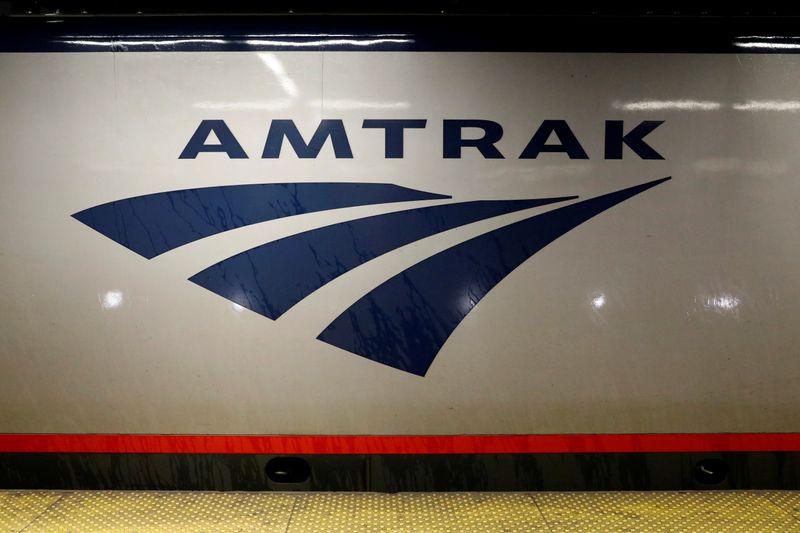By David Shepardson
WASHINGTON (Reuters) - U.S. passenger railroad Amtrak told a U.S. House of Representatives panel on Thursday it expects to be forced to temporarily cut some service in January because of a COVID-19 vaccine mandate.
Amtrak President Stephen Gardner told a House Transportation subcommittee that roughly 95% of its 17,000 employees have been fully vaccinated ahead of a Jan. 4 deadline.
"We anticipate proactively needing to temporarily reduce some train frequencies across our network in January to avoid staffing-related cancellations, with our plan to fully restore all frequencies by March or as soon as we have qualified employees available," he said.
Gardner said in written testimony he expects the reductions to be in long-distance services "because of the relatively small crew bases at intermediate points along multi-day long-distance routes where conductors and engineers report to work."
He noted that many engineers, conductors and on-board service employees retired or left Amtrak and it temporarily halted hiring due to funding uncertainty.
Without additional employee vaccinations Gardner said Amtrak is "currently determining what service reductions will be necessary and intend to communicate them publicly by next week."
An inspector general report released on Thursday said Amtrak plans a big boost in hiring but faces challenges.
The report found Amtrak's Human Resources Department "does not have sufficient leadership or staff to effectively recruit, screen, hire, and onboard new employees, which will likely hinder the company’s plans to add 2,500 to 3,500 new employees" by late 2022.
Amtrak said in comments that it agreed with the report's recommendations and pledged specific actions by October 2022, including "reviewing executive compensation and incentives."
Congress has approved $66 billion for rail as part of a massive infrastructure bill, with Amtrak receiving $22 billion and $36 billion for competitive grants.

Gardner said the funding "will require educating, hiring, training, and developing career paths for thousands of additional workers."
Amtrak saw demand fall off substantially during COVID-19 and is now seeing about 70% of pre-pandemic volumes. "We don't know how long it'll take before business travel has returned," Gardner said.